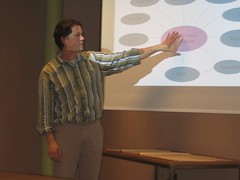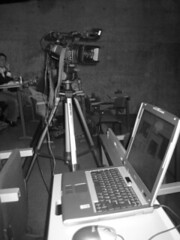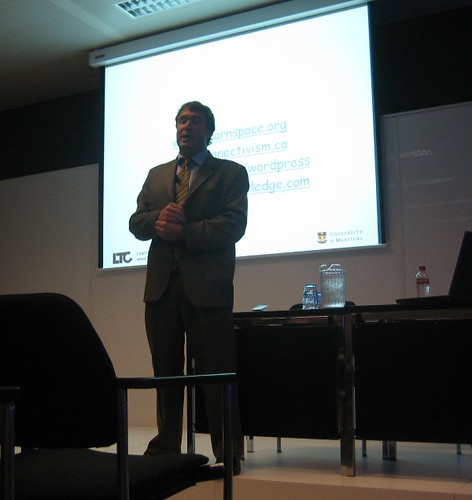http://h20325.www2.hp.com/blogs/highered/archive/2006/10/20/1769.html
The comment was placed by somebody who remains nameless but I simply must quote it here:
One of the funny uses of the video: one student, whenever he fell asleep and woke up in the middle of the class, he wrote down the time so that (apparently), when the video came out, he can index into the video to know when he woke up and when he was sleeping!
But seriously: the rest of the article does point at a number of aspects which appear regularly in articles on recorded lectures: attendance does not drop significantly, students behaviour during the lecture is different, students find it great if they cannot attend a lecture. In fact today at Eindhoven (see my previous posting) Michiel mentioned that the dropping out of a series of lectures appeared to lessen as students could cover a lecture they had missed, rather than giving up on the series entirely. This might be an interesting aspect for more complex subjects (e.g. statistics) in which for some students missing one lecture, means missing the whole jist of the subject. Please note: this is conjecture, but worth an examination none the less.





